I HATE pellets
There, I’ve finally come out and said it. As far as I’m concerned the bait which so many anglers rate as the first choice in their armoury are horrible, oily, stinky, rancid, potentially fish killing lumps of planet-harming crud which make all anglers who use them think they are God’s gift to angling.
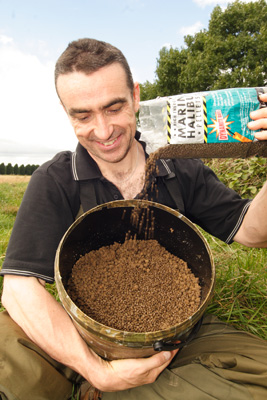 OK, OK so that’s a bit OTT but let’s calm down and take a long, hard look at the evidence and see just what the pellet has brought to the angling table during the decade or so in which they become the primary bait of choice for so many.
OK, OK so that’s a bit OTT but let’s calm down and take a long, hard look at the evidence and see just what the pellet has brought to the angling table during the decade or so in which they become the primary bait of choice for so many.
Let me start off that by saying ‘pellet’ I’m referring primarily to the hi-oil trout, salmon or halibut pellet and not to the low oil ‘coarse’ type pellets such as bloodworm, corn steep, hemp etc which are a very different animal altogether.
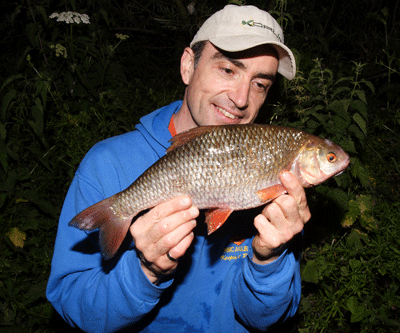 Let me also say that I do use pellets, very rarely if ever on the hook these days, but frequently in groundbait and method and spod mixes and in my bait shed at the moment are a dozen or so kilos of Dynamite’s finest 3, 4, 6 and 8mm Marine Halibut Pellets to see me through this year. Yes, that’s right, a dozen kilos to see me through the year, not the month, the week or even (heaven forbid) the next session but the whole year!
Let me also say that I do use pellets, very rarely if ever on the hook these days, but frequently in groundbait and method and spod mixes and in my bait shed at the moment are a dozen or so kilos of Dynamite’s finest 3, 4, 6 and 8mm Marine Halibut Pellets to see me through this year. Yes, that’s right, a dozen kilos to see me through the year, not the month, the week or even (heaven forbid) the next session but the whole year!
It is, of course, the question of quantity as well as quality of pellet which is one of the key issues here and just as tiger nuts have got a bad reputation in carp fishing circles because some plonkers think if they can catch fish using a handful then they will take a venue apart with a sackful (when in fact the reverse is true) so it is with pellets.
Just as carp anglers were quick to get on the pellet bandwagon so it was with barbel anglers and overnight a nation of meat chuckers became a nation of pellet flingers and the results were dramatic. Although you could (and still can) catch barbel on a big lump of the pink stuff chucking it into the middle of a summer river in broad daylight usually brought just one result as the barbel, quite rightly, used to bolt at the sight of it! Pellets changed everything.
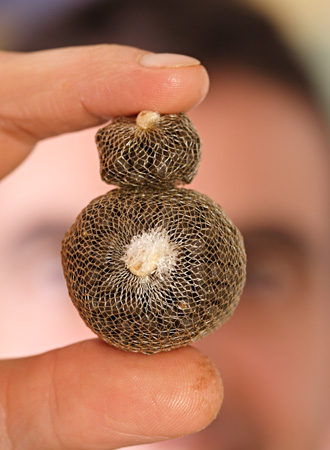 The advent of the pellet revolution suddenly saw literally thousands of anglers start to catch barbel with a much greater regularity as the fish were quick to switch onto the new, and highly attractive, food source. Being very convenient, easy to present and relatively cheap barbel anglers on rivers right across the country switched onto the bait with just as much gusto as the barbel and with popular beats of some rivers seeing dozens of anglers using a gallon or so of pellets each and every day you soon begin to get an idea of the amount of the things being chucked in – we are talking tonnes – and I have vivid memories (or should that be nightmares) of watching Kennet barbel anglers using barrows to wheel 25kg sacks to their swims…
The advent of the pellet revolution suddenly saw literally thousands of anglers start to catch barbel with a much greater regularity as the fish were quick to switch onto the new, and highly attractive, food source. Being very convenient, easy to present and relatively cheap barbel anglers on rivers right across the country switched onto the bait with just as much gusto as the barbel and with popular beats of some rivers seeing dozens of anglers using a gallon or so of pellets each and every day you soon begin to get an idea of the amount of the things being chucked in – we are talking tonnes – and I have vivid memories (or should that be nightmares) of watching Kennet barbel anglers using barrows to wheel 25kg sacks to their swims…
Pellets became the great leveller, suddenly everyone could catch barbel and overnight the rules of the game changed for the thinking angler. I’m all for everyone catching more fish, bring it on, but no longer could you arrive in a swim and do your own thing because there was always the distinct possibility that someone had been in the swim the previous day or, heaven forbid, earlier the same day and dumped a couple of kilos of feed into it. The nature of the feed was such that it was filling and slow to digest so that barbel stuffed to the gills on high oil pellets would be less inclined to feed again for a much longer period than one picking up easy to digest hemp or maggots.
For the same reason I’m totally convinced that pellets have resulted in barbel being far harder to catch in the winter months than they ever were before. Filled with a high concentration of fat after an autumn of feasting on pellets a barbel surely has less need to re-fuel when conditions are adverse. Of course they will still feed when conditions are perfect – they are wild creatures in a constantly moving environment and need to take on calories if they are expending energy – but in recent years there are very few barbel anglers who will tell you that winter fishing has improved; barbel have less need to feed and a couple of 14mm pellets is probably more than enough to satisfy a big fish – now, just what did you put into your swim last winter?
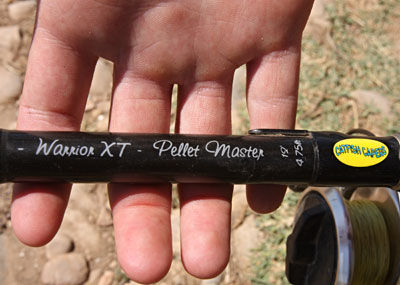 Winter is particularly problematical and I was inspired to pen this piece as a result of an angler moving in just downstream of me at the back end of last season. Despite an overnight frost and a water temperature of some 42 F said angler threw in a large handful of halibut pellets every five minutes for the course of his session until he had all but exhausted the large bucket he had brought with him.
Winter is particularly problematical and I was inspired to pen this piece as a result of an angler moving in just downstream of me at the back end of last season. Despite an overnight frost and a water temperature of some 42 F said angler threw in a large handful of halibut pellets every five minutes for the course of his session until he had all but exhausted the large bucket he had brought with him.
If you have ever put oil in the fridge you will know exactly what happens to it at low temperatures and fish which struggle to metabolise oil at the best of times are far less able to do so when their metabolism is at its lowest and the oils in the bait are solid and totally insoluble. We are not talking warm water fish culture here and we not using feed designed to be eaten by Cyprinid fish either – the clue is in the name: trout, salmon and halibut pellets are designed to feed…guess what?
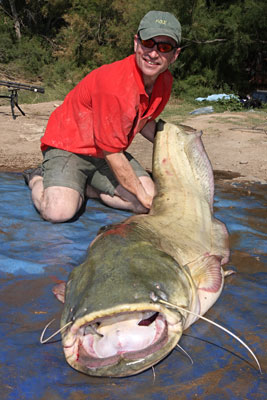 A combination of anecdotal evidence and then scientific research showed the adverse impact of a diet of high oil pellets on the livers of cyprinid fish not evolved to cope with them and with the organs in question rapidly turning to a mushy jelly many fishery owners were quick to ban their use. It is important to point out here that this impact was on fish fed an exclusive diet of high oil pellets and that there is no harmful effect whatsoever on fish in a natural environment with access to a varied diet – such as river barbel – but the amounts being used should nevertheless ring alarm bells.
A combination of anecdotal evidence and then scientific research showed the adverse impact of a diet of high oil pellets on the livers of cyprinid fish not evolved to cope with them and with the organs in question rapidly turning to a mushy jelly many fishery owners were quick to ban their use. It is important to point out here that this impact was on fish fed an exclusive diet of high oil pellets and that there is no harmful effect whatsoever on fish in a natural environment with access to a varied diet – such as river barbel – but the amounts being used should nevertheless ring alarm bells.
Quality-wise all sacks of pellets sold by the fish farming industry have a best before date in respect of the vitamin and mineral content and it is a surprisingly short time from the date of manufacture. The fact we may be using pellets which have passed this date is probably irrelevant as we are not looking to supplement our fish with vitamins but fish oils become rancid quickly, making then less attractive to fish and potentially harmful, and that’s supposing all pellet products sold into the angling market are made with fresh, high quality fish oil and believe me, they aint! You should always bin any unused pellets at the end of every season – but how many of us actually do?
Have you just settled into a once prime barbel swim not just containing a couple of kilos of pellets but a couple of kilos of rancid pellets? Perhaps you now begin to see the extent of the problem!
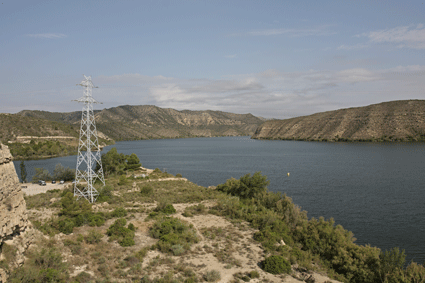 The fact that high oil pellets have helped to artificially increase the weight of fish is oft discussed and there is no denying the extraordinary growth of catfish in, for example, some stretches of Spain’s River Ebro where pellets are applied not by the bucket but by the sack and much the same can be said of the cats in many British stillwaters.
The fact that high oil pellets have helped to artificially increase the weight of fish is oft discussed and there is no denying the extraordinary growth of catfish in, for example, some stretches of Spain’s River Ebro where pellets are applied not by the bucket but by the sack and much the same can be said of the cats in many British stillwaters.
The roach on my local beats of River Kennet have come on incredibly since pellets started to be introduced in huge quantities and an opening day fish of 2lb 11oz on a legered 14mm pellet intended for barbel brought this home to me several seasons ago and to this day if you want a big Kennet roach the bait to use on most sections which see any sort of barbel pressure is not a pinch of flake or a delicately presented maggot or caster but a bloody big pellet!
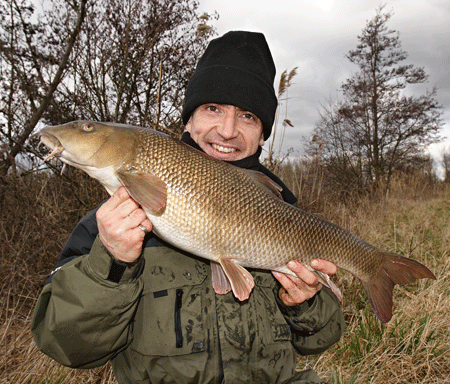 Barbel everywhere have been creeping up in weight too but with many of these weight gains on rivers which have not received an excessively huge input of pellets there are clearly other factors involved too; most notably global warming which, despite a couple of very cold winters, is a fact of life and one which has increased the potential annual feeding window of all species.
Barbel everywhere have been creeping up in weight too but with many of these weight gains on rivers which have not received an excessively huge input of pellets there are clearly other factors involved too; most notably global warming which, despite a couple of very cold winters, is a fact of life and one which has increased the potential annual feeding window of all species.
Pellets do play a role though but what of the consequences to the health and longevity of the fish? To their reproductive capabilities? To the wider environment of an unnatural pollutant? And a pollutant is exactly what an excess of any potentially harmful substance is be it crude oil in the Gulf of Mexico or pellet oil in the Ebro or Severn.
At the top of this feature I mentioned planet-harming pellets and although I’m not going to stand on my green soap box (well, not for long) there is no denying the fact that unsustainable global fishmeal production has major adverse social and economic impacts. The amount we use for angling is but a drop in the proverbial ocean compared to that used to feed farmed fish but fishmeal is potentially bad news from source to end use.
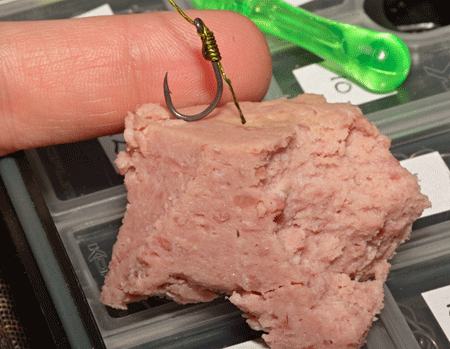 Despite everything pellets do remain an important part of our angling and I’d certainly hate to fish for bream or cats without them. I believe they still have a major role to play in barbel angling too but they need to be used appropriately to both maximise their effectiveness and to ensure that they do not damage the fish, the aquatic environment or the sport of other anglers. So, this season why not take a fresh look at pellets?
Despite everything pellets do remain an important part of our angling and I’d certainly hate to fish for bream or cats without them. I believe they still have a major role to play in barbel angling too but they need to be used appropriately to both maximise their effectiveness and to ensure that they do not damage the fish, the aquatic environment or the sport of other anglers. So, this season why not take a fresh look at pellets?
Start off by chucking out any left over from last season (and not into a waterbody please!!) and buying in fresh supplies. Only use them from the start of the river season through to the end of September, after which time switch to a low oil version. Think about alternative pellet baiting strategies such as using a feeder filled with wetted and mashed pellets to put pellet flavour into the water without actually feeding.
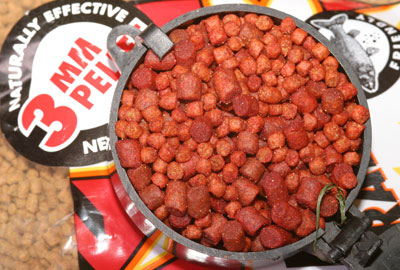 Use a PVA bag or bait dropper to put your pellets exactly where you want them rather than flinging them in and hoping, instead of using a PVA bag the size of a golf ball use one the size of a hazelnut and think about alternative hookbaits – maggots, casters, corn, paste, boilies and dare I say it even meat!
Use a PVA bag or bait dropper to put your pellets exactly where you want them rather than flinging them in and hoping, instead of using a PVA bag the size of a golf ball use one the size of a hazelnut and think about alternative hookbaits – maggots, casters, corn, paste, boilies and dare I say it even meat!
Not only will you almost certainly catch more barbel as a result but you will also not have me sticking a 40mm halibut pellet where the sun don’t shine when you fill in a swim near mine next February!













